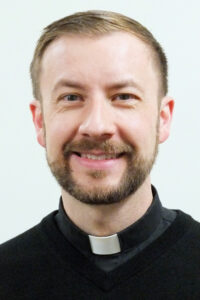Q. Please explain what is required to obtain the indulgence for the First Fridays devotion to the Sacred Heart. I have read that you need to be in a state of grace. Does that mean going to confession each month?
A. First, it may be helpful for our readers to briefly explain what an indulgence is, as some may be unfamiliar with the concept or believe that this is something the Church no longer practices.

An indulgence, as defined in the “Catechism of the Catholic Church,” is “a remission before God of the temporal punishment due to sins whose guilt has already been forgiven, which the faithful Christian who is duly disposed gains under certain prescribed conditions through the action of the Church” (para. 1471). Indulgences, therefore, are connected with our understanding of purgatory, that state of final purification after death before entering heaven.
Recognizing that all analogies limp, here is one helpful analogy I have heard. Suppose you broke your neighbor’s window while playing baseball. Hopefully, you would go over to your neighbor’s house, explain what happened and apologize. Your neighbor may graciously forgive you, but there is still the matter of the window to be repaired. Your neighbor may ask you to replace it, which might mean doing some extra chores to earn the money to repair the window or paying them back in kind by raking their leaves or offering to watch their dog when they are away. The sin (carelessly, if not intentionally, breaking the window) is truly forgiven, but something still needs to be “worked off.” An indulgence is basically the lessening or elimination of that “temporal punishment” or that “working off” that needs to be done in purgatory.
The faithful may do many things to obtain an indulgence, under the usual conditions of going to confession, receiving Communion and praying for the intentions of the pope. The other, more tricky, condition is that the person is “to have the interior disposition of complete detachment from sin, even venial sin” (“The Gift of the Indulgence,” Apostolic Penitentiary, 2000). This means that the person is to be in a “state of grace” (i.e. unaware of any unconfessed mortal sin) and detached from sin. The person is not complacent in his or her sinfulness but recognizes (however small) that it is an offense against God. It is the sentiment expressed in the Act of Contrition in the words, “I detest all of my sins.”
The First Friday devotion may also be worth explaining. This goes back to St. Margaret Mary Alacoque (1647-1690) and the visions she had of the Sacred Heart of Jesus. The idea is to observe nine consecutive first Fridays of the month by participating in Mass and receiving Communion in reparation for the sins against the Sacred Heart of Jesus. There are a number of promises attached to this devotion. The usual conditions for all “indulgenced acts” would apply here, which to my mind would include monthly confession, at least if necessary.
I should also explain that an indulgence may be “partial” or “plenary.” A partial indulgence is the remission of some of the temporal punishment due to sins, whereas a plenary indulgence is the remission of all temporal punishment due to sins.
One final note: while doing various things or praying specific prayers to obtain indulgences is time-honored and well established in the Church’s theology and practice, I think we always need to be careful not to think that we can “force God’s hand.” God is not a “gumball machine,” in which we put our quarter and turn the crank to get what we want. All is grace!
(Father Thom Hennen serves as the pastor of Sacred Heart Cathedral in Davenport. Send questions to messenger@davenportdiocese.org)






